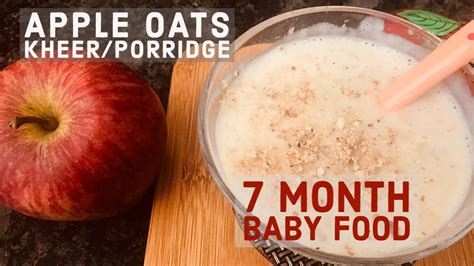How to Get Rid of Diarrhea: The Ultimate Guide
Diarrhea, characterized by loose and frequent bowel movements, can be an unsettling and embarrassing experience. Affecting millions worldwide, it can arise from various causes, ranging from viral infections to food poisoning. While most cases resolve within a few days, prolonged or severe diarrhea can lead to dehydration and electrolyte imbalances, requiring prompt medical attention.

Understanding Diarrhea: Causes and Consequences
Various factors can trigger diarrhea:
- Infectious agents: Viruses (e.g., rotavirus, norovirus), bacteria (e.g., E. coli, Salmonella), and parasites (e.g., Giardia)
- Dietary indiscretions: Food intolerance (e.g., lactose intolerance, gluten sensitivity), contaminated or spoiled food
- Medications: Antibiotics, laxatives, certain antacids
- Medical conditions: Irritable bowel syndrome, inflammatory bowel disease, celiac disease
- Psychological stress: Anxiety, fear
Prolonged or severe diarrhea can result in dehydration and electrolyte imbalances, which can manifest as:
- Fatigue
- Headache
- Confusion
- Muscle cramps
- Rapid heartbeat
- Reduced urine output
7 Proven Ways to Combat Diarrhea
-
Hydrate relentlessly: Replenishing fluids is crucial to prevent dehydration. Drink plenty of water, electrolyte-rich fluids (e.g., sports drinks, oral rehydration solutions), and clear broths.
-
Adopt the BRAT diet: This temporary diet consists of bland and easily digestible foods:
- Bananas
- Rice
- Apple sauce
- Toast
-
Avoid trigger foods: Identify and eliminate any dietary substances that exacerbate diarrhea, such as dairy, spicy foods, or caffeine.
-
Probiotics and prebiotics: Probiotics (beneficial bacteria) and prebiotics (fiber that feeds probiotics) can help restore balance to the gut microbiome, promoting digestion. Yogurt and kefir are good probiotic sources, while fruits and vegetables are rich in prebiotics.
-
Over-the-counter (OTC) medications: Bismuth subsalicylate (Pepto-Bismol) can reduce diarrhea frequency and urgency. Loperamide (Imodium) slows intestinal contractions, but should be used cautiously in certain conditions.
-
Zinc supplementation: Zinc plays a vital role in repairing the intestinal lining. For adults, 30-50 mg/day is recommended.
-
Rest and relaxation: Stress can worsen diarrhea. Make time for relaxation and meditation, and get adequate sleep to promote healing.
Common Mistakes to Avoid
-
Ignoring dehydration: Dehydration is a serious risk, especially in children and the elderly. Seek medical attention if experiencing severe or prolonged diarrhea.
-
Self-medicating excessively: Overuse of OTC antidiarrheal medications can lead to side effects and delay the body’s natural healing process.
-
Consuming sugary drinks: Sugary drinks can worsen diarrhea by drawing water into the intestines.
-
Eating high-fat or processed foods: These foods can overload the digestive system and aggravate symptoms.
Why it Matters: The Benefits of Resolving Diarrhea
Treating diarrhea promptly can:
-
Prevent dehydration and electrolyte imbalances: Restoring fluid and electrolyte levels ensures proper bodily functions.
-
Reduce discomfort: Loose and frequent bowel movements can cause abdominal pain, cramping, and urgency.
-
Halt transmission: Diarrhea can be contagious, so resolving it quickly helps prevent spread to others.
-
Restore gut health: Diarrhea can disrupt the gut microbiome, leading to long-term digestive issues. Treating it helps restore balance.
Comparison: Pros and Cons of Different Treatments
Over-the-Counter Medications
| Pros | Cons |
|---|---|
| Quick relief | Side effects |
| Easily accessible | Can delay healing |
| Temporary solution | Not suitable for all cases |
Dietary Modifications
| Pros | Cons |
|---|---|
| Safe and natural | May not be effective in all cases |
| Long-term benefits | Can be restrictive |
| Promotes gut health | Requires discipline |
Zinc Supplementation
| Pros | Cons |
|---|---|
| Supports intestinal repair | May interact with certain medications |
| Relatively inexpensive | Requires daily intake |
| Can be used for prevention | Not always necessary |
Probiotics and Prebiotics
| Pros | Cons |
|---|---|
| Promote gut balance | May not be effective for all |
| Long-term benefits | Can be expensive |
| Support immune function | May require regular use |
Conclusion
Diarrhea can be a distressing and disruptive condition, but with the right strategies, you can overcome it effectively. By following the proven methods outlined above, staying hydrated, and avoiding common mistakes, you can regain control of your digestion and restore your overall well-being. If symptoms persist or worsen, do not hesitate to consult a healthcare professional for further evaluation and treatment.
















